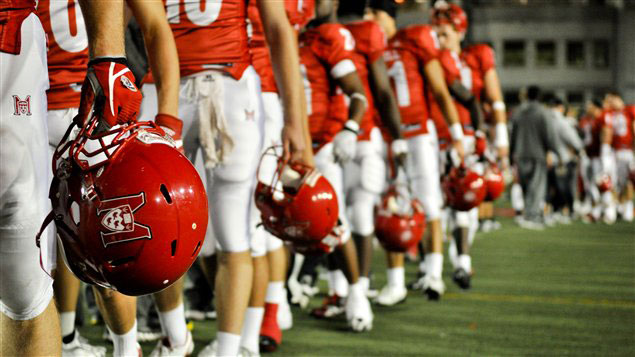Following the McGill administration’s decision to change the name of the varsity mens’ teams in April 2019, the Steering Committee assigned to find a new name for the teams by August 2020 has seen their work delayed due to COVID-19. Following Indigenous-led student activism, McGill Principal and Vice-Chancellor Suzanne Fortier announced in an email on Apr. 12, 2019 that a Steering Committee would be formed to select a new name.
Deputy Provost (Student Life & Learning) Fabrice Labeau and Mr. Hubert T. Lacroix, a former McGill varsity head coach, are the co-chairs of the committee. Labeau attributed the delay in part to the magnitude of the process.
“There was [an] excellent response to the open call for name ideas, [and] the Steering Committee received more than 500 submissions,” Labeau wrote in an email. “[We take] seriously the responsibility of choosing a name that honours McGill’s long history of athletic achievement, and expresses the university’s values and principles. The Committee plans to conclude its work in the coming weeks. Part of this work includes doing the necessary due diligence before we publicly announce a new name.”
Tomas Jirousek, former Indigenous Affairs Commissioner of the Student’s Society of McGill University (SSMU) and leader of the #changethename campaign, highlighted the larger implications of the renaming process when it comes to Indigenous students and reconciliation.
“The McGill administration has a moral obligation to deliver a new name in a timely, and respectful manner, one which recognizes the impact and history of the Redmen name,” Jirousek wrote in an email to the Tribune. “A delay in moving forward with a new name acts as a barrier in moving towards that place of reconciliation.”
Jirousek understands the issue of the men’s team name as a significant decision, one of the many hurdles that need to be addressed by the McGill community.
“There are pressing issues facing Indigenous students at McGill, and the university cannot genuinely confront those issues while we are still grappling with the legacy of the Redmen name,” Jirousek wrote. “I am disappointed but not surprised in the length of time that it takes McGill to meaningfully address issues of colonialism on campus.”
While Labeau focused on the scale of the decision-making process, Jirousek feels that the process of renaming is in fact a simple one that is a matter of two choices.
“Choose the McGill Martlet name, a name which our varsity women’s teams have championed, or open a process for choosing a name which actually honours Indigenous nations,” Jirousek wrote. “The administration should have been in contact with the SSMU Indigenous Affairs Commissioner during this process to properly explain how this issue […] has been impacted by [COVID-19].”
Jo Roy, an Abenaki U2 social work student, shared Jirousek’s concerns about a lack of transparency and communication between the Steering Committee and the student body.
“I only remember the call for name submissions going out last year [and] I have yet to see any information [or] updates from this committee,” Roy wrote to the Tribune. “Committees are usually struck by institutions as a means to signal that they’re doing something about an issue without actually doing anything [….]”
Regarding the impact that COVID-19 may have had on the process of selecting a new name, Roy expressed dissatisfaction.
“[It] feels like the committee meant nothing to the administration to begin with, [and] that the pandemic was just a convenient way for them to forget about […] the promise made to Indigenous students,” Roy wrote.“Everyday that a new name has not been chosen to replace that racist nomenclature is another day that [McGill is] unwelcoming to Indigenous students.”








